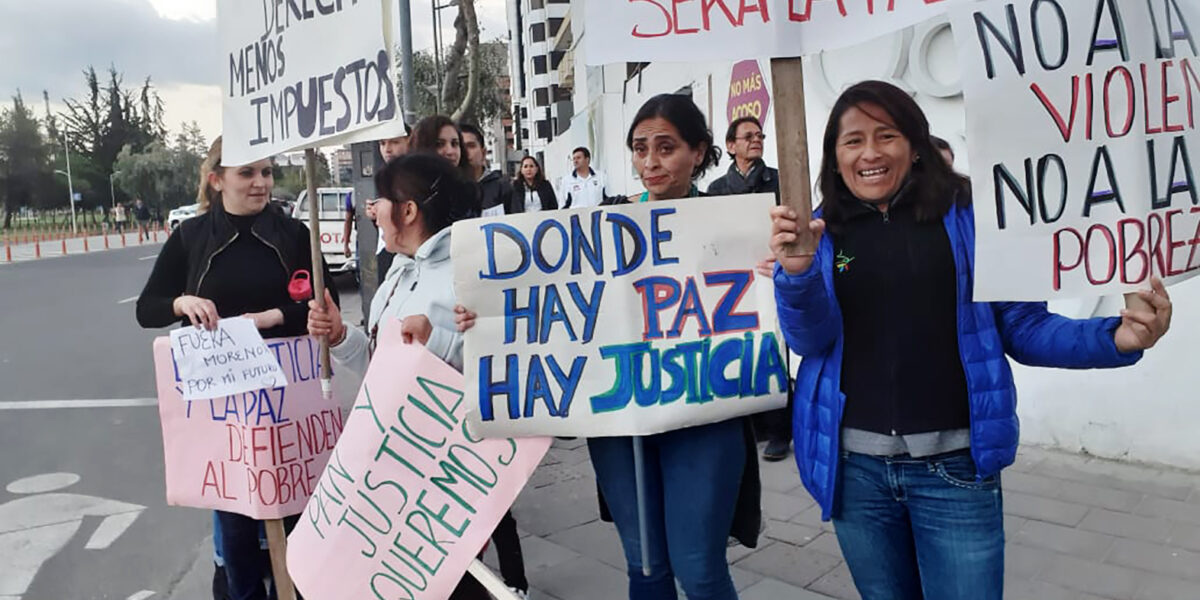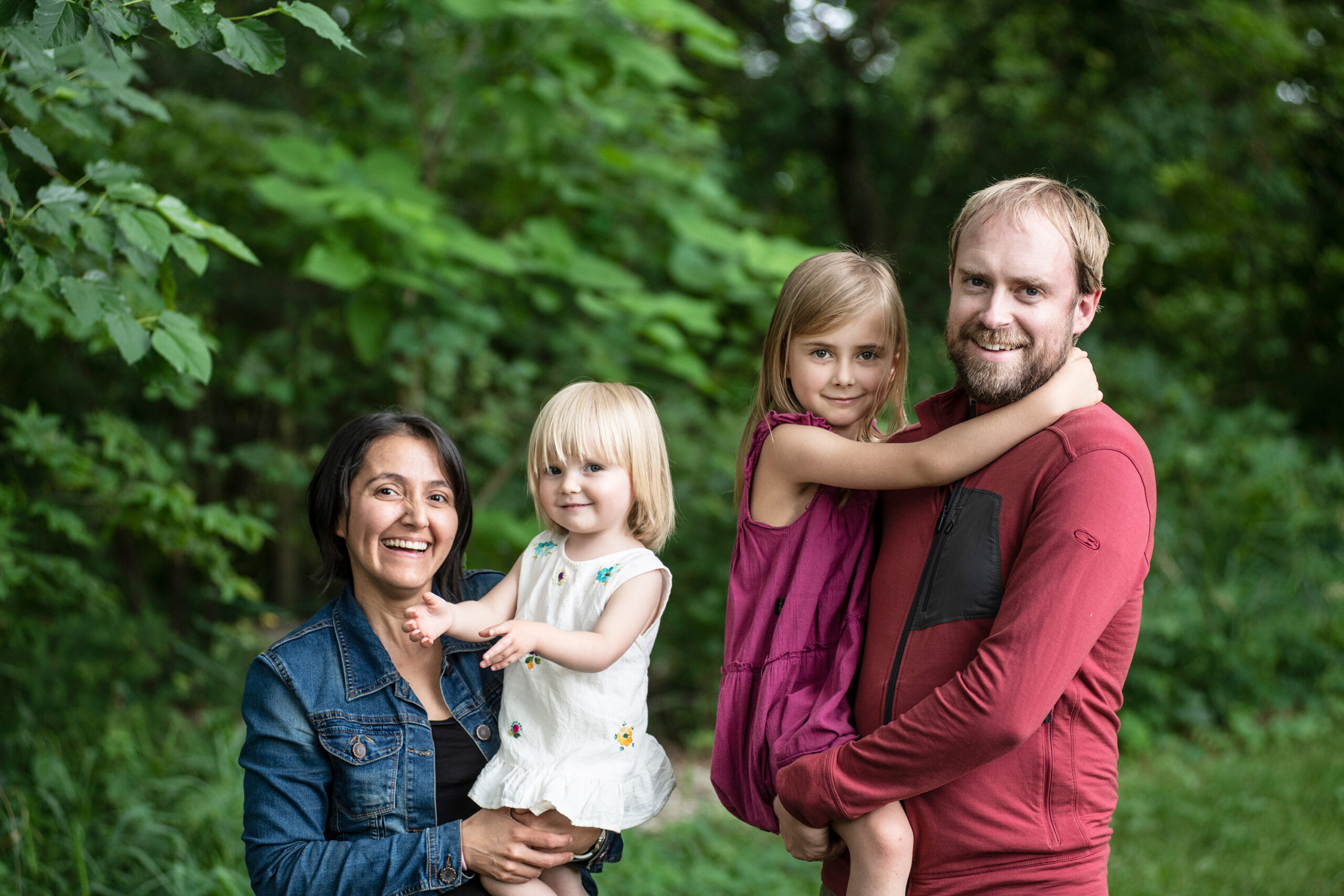Ecuador has generally been a very peaceful and politically stable nation, compared to its close neighbors, Colombia and Peru. Delicia and I have been serving the past four years with Mennonite Mission Network in Quito, Ecuador’s capital, and we have experienced this calm. However, Ecuador has struggled a lot economically. And now these struggles are coming to a catalytic moment as mass transportation sector strikes and a large indigenous march are exciting the nation.
Ecuador’s current president, Lenin Moreno, has tried to distance himself from the previous government and leader, Rafael Correa. Correa had always championed his "Civilian Revolution" and invested a lot in public infrastructure. He also pushed back against U.S.-led policies and other neoliberal ideals.
Moreno recently worked with the International Monetary Fund to strike a deal for a loan for the government; some of the deal required that the government reduce spending. The deal was hammered out behind closed doors, without the knowledge or approval of the Ecuadorian general assembly or congress. And now some terms of the loan agreement are coming due.
The government announced Oct. 1 its plans to cut subsidies for diesel and gasoline. Those cuts raised costs for taxi operators, bus owners, and food prices. These subsidy cuts have caused an almost 100 percent hike in gas and diesel prices. This huge spike has sparked protests from transportation organizations and unions.
Mission Network partners encourage peace and justice to reign
Those strikes eased after a few days, but now student movements and indigenous organizations—especially CONAIE, a national indigenous organization—are pressing forward in a growing indigenous march now storming into Quito. More information on IMF and subsidies are explained by The Guardian, Bretton Woods Project, and Vox.
Mission Network partners, the Quito Mennonite Church of ICAME, and the indigenous Mennonite churches of ICME, are involved in fixing food for the marchers. Mission Network’s local partner, FEINE, is also helping to organize the march. It has officially said that it is against the decree that cut the subsidies for fuel.
Oct. 8, several FEINE leaders were arrested and detained when they pushed into the national Assembly building with other protesters. Julian Guaman of ICME estimated that more than 50,000 indigenous people are participating in the march to Quito, and more than 20,000 are marching to Guayaquil. Members of ICME churches are also participating in the indigenous march. Guaman shared that ICME has not issued an official statement. But members of their churches are pushing against injustice, citing Matthew 21:12-13, when Jesus pushed out the money lenders from the temple.
Another member of the ICME churches, youth leader Anita Aguagallo, said that the government has not initiated dialogue, but has fomented hate toward the indigenous movements. She believes the church needs to have a message of love toward all our brothers and sisters. Aguagallo also shared that she was at a protest site Oct. 8 where police used violence to suppress the protesters – many of them women and children. Several protestors, including children, were hurt.
Members of the Mennonite church in Quito are participating in public demonstrations in favor of justice and peace. ICAME issued a statement that reads in part: "We call for work to overcome structural injustice and go beyond an economic model that has placed the majority of the population on the margins. [New laws must be created] to organize society not around capital, the market and the transnationals, but [around] the common good, for the people who are on foot, and to solve the problems of injustice and unemployment that afflict thousands of Ecuadorians."
The church leaders acknowledged that the United Nations and the leaders of the Catholic Church and universities have been designated to start mediation. But the president has reiterated they will not give in to the decree that cut subsidies. Please pray for Ecuador, the government, the different social and religious leaders, and the different Mennonite congregations in Ecuador. We are called by Christ to love our enemies no matter where they may be from.
Martin Luther King Jr. gave us guidance on how we can love our enemies and push against injustice: "Nonviolence is a powerful and just weapon, which cuts without wounding, and ennobles the man who wields it. It is a sword that heals."
But this question remains for the global church: How can we support brothers and sisters in Ecuador and around the world who are combating injustice? We most certainly can be in prayerful communion with them. But is this enough? We can petition our different leaders of government (the IMF is mostly run at the discretion and guidance of the current U.S. administration). Is this enough? We can take to the streets as members of the Ecuadorian church are doing, but who will take notice?
Maybe we can take heart in a different call from King, found in an excerpt from his essay, "Loving Your Enemies:" "To our most bitter opponents we say, ‘We shall match your capacity to inflict suffering by our capacity to endure suffering. We shall meet your physical force with soul force. Do to us what you will, and we shall continue to love you. …"
We can and shall pray. We can and shall make our voices heard. We can also march. But we must remember that we will also suffer, and within that suffering, we must love.








